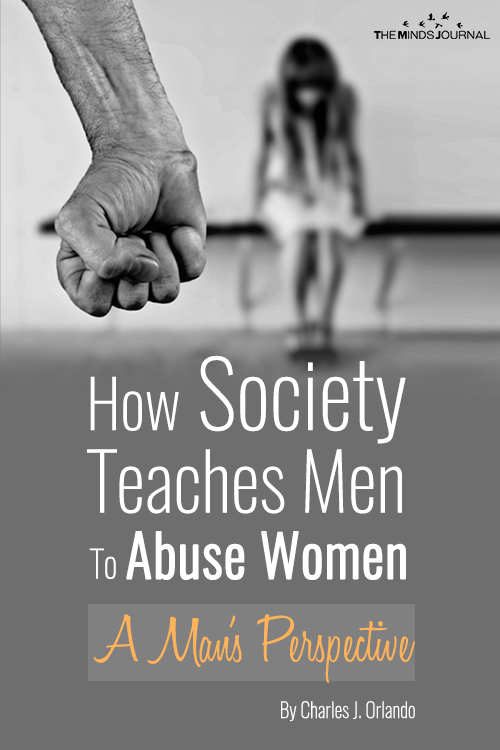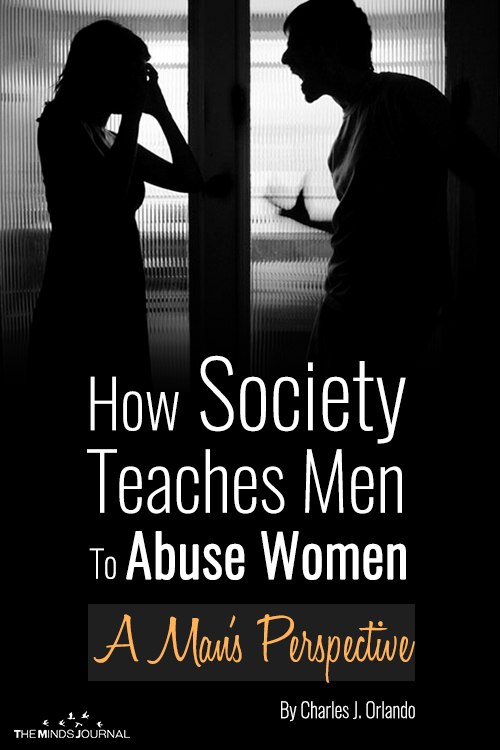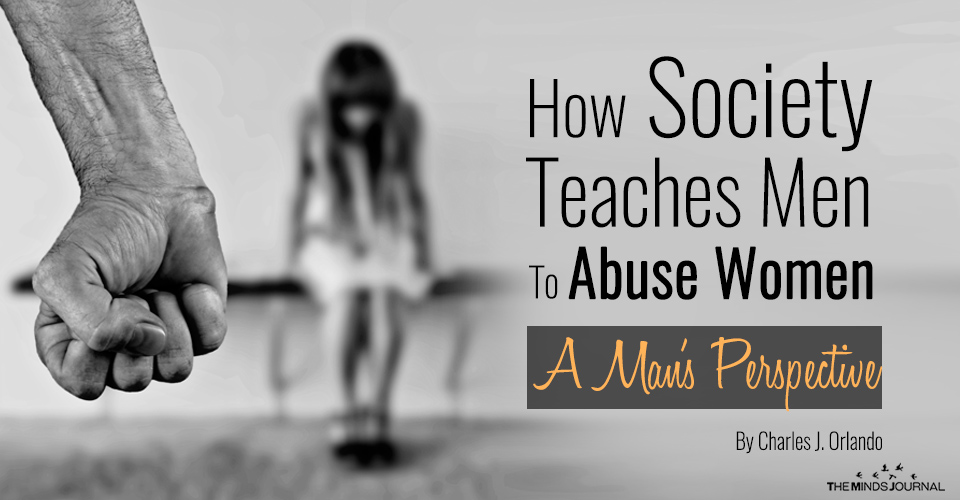Abuse towards women are highly prevalent but are rarely reported.
Violence against women is unfortunately everywhere—worldwide and cross-culturally. Verbal, physical, sexual abuse is in the news on a nightly basis, and the latest is showcased in high definition for all to see: Stanford Rapist Brock Turner.
The judge let him off with a VERY lenient sentence. Brock’s father wrote a disgusting letter in a feeble attempt to make excuses for his son despicable, deplorable behavior—showcasing how rape culture in the U.S. is completely enmeshed in college athletics. And social media is up-in-arms at the injustice.
Count me in, because I’m pissed. I’m not just angry because I have an 18-year-old daughter who is entering college shortly with reprehensible imitation men like Brock Turner.
It’s because this issue is more than just about Brock. It’s more than just Brock’s father’s enablement of violent behavior. It’s a societal issue, and it has its claws dug into all of us so deeply, that it’s starting to feel normal.
As a society, we know it’s not right. But we have become desensitized, having been inculcated with messages that violence against women is just part of life. We give the headlines and news reports less weight, many times placing the blame on the victims. This attitude is, in so many ways, enabled and monstrously encouraged by society, by men, and by women themselves. The worst part: Most people are unaware of it.
To gain an understanding of where this shift in attitude happens, we should take a look at men and women before they grow up; before they form their opinions and outlooks on male/female relations and relationships.
Societal Influence
The detrimental mentality starts early, and is encouraged silently. In addition to family environment—which is highly individualized and filled with imperfections and influences—much of the issue starts as young kids branch out into society: primary school. Boys and girls try to find their way with male/female dynamics, experiencing attraction when they aren’t mature enough to recognize the feelings as romantic interest.
They play chase and tag on the playground; try to catch each other, innocently imitating the courtship behavior that will come later in life.
But things aren’t always so cute and cuddly. Give our young heroes/heroines a bit of time, and you will find boys exhibiting their testosterone-laden traits of strength and dominance. They will get physical: pushing girls to provoke, hitting them to conquer, verbally teasing them with insults, and mentally dominating them to illustrate the control they have of their domain.
And the girls start down one of three paths:
1. They ignore it.
There isn’t a real way to ignore this behavior, although many women falsely believe they are empowered in doing this. In reality, the insults and negative statements do get in. And by “ignoring” things, these girls are actually taking/accepting this behavior. In turn, girls learn that they are the subordinate gender regardless of their intelligence, their drive, their spirit, their wit, or their gifts. Later in life, these girls (now women) can end up internalizing this behavior as what’s normal, and that they deserve it
2. They fight back.
They stand up for themselves, but so often this becomes a way for women to embrace too much of their masculine side—and there becomes an unbalancing of their feminine side. They fight, resulting in unintentionally sacrificing their compassion, empathy, and nurturing side. Many times, this gets internalized that all men are bad, and in extreme cases—with enough damage taken—these girls become haters of men as they become adults.
3. They shift it.
As the more social of the genders, girls learn to navigate these muddy waters in a variety of ways: Using their smarts to negotiate out of the situation, or (later) using their sexuality to feel loved instead of abused and worthless.
By using sensuality, many women learn that promiscuity can result in feelings of being wanted/desired but not respected long-term.
Can these girls change paths? Of course. But it can be challenging to undo what’s been learned once the pattern is reinforced and it’s usually reinforced right away.
If a young girl goes to a teacher to complain about a boy hitting her, one of the most common responses is also the most damaging: “He’s doing that because he likes you.” And in that one simple phrase, so many girls end up learning that when a boy hits you, he is showing love.
But boys certainly have their side of this situation to deal with, as well, and are blasted with a set of messages at the same young age:
- “Boys don’t cry.”
- “Stop whining. You sound like a girl.”
- “Take it like a man.”
- “You throw like a little .”
The message, of course, is clear: Girls are weak, whiny, uncoordinated complainers, and boys should never want to be perceived as one.
The real flaw of these messages/lessons doesn’t show until later in life. That’s when women want men to show emotion, be vulnerable, sensitive, and understanding, and exemplify empathy. But it’s challenging for many/most men, in that parents and societal pressures have worked hard to weed that behavior out of their repertoire—showing that these traits are weak, and weakness is for women.
REFLECTION: When a man doesn’t know how to be vulnerable, forthcoming with his feelings, and willing to share what bothers him why is everyone so surprised?
The Influence of the Family Unit
I visited Disneyland recently. In one of the shops, I observed a brother and sister (she was approximately 7 years old, the boy about a year older) sitting on a bench waiting for their parents (who were only about six feet away at the cashier).
The boy was messing with his sister—mocking, teasing, you know, sibling stuff. Then, it changed. She stopped reacting to his provocations, and he escalated things: He hit her in the head; full fist, half-swing.
Tears came, and she cries out, “You always hit me! Don’t hit me!” The young boy’s response? He hit her in the head again. With the additional commotion, the parents have now noticed that something is happening with their kids. The mom (who has seen the second punch connect) remains silent; stoic.
The dad: “Megan! Be quiet!” The mom looks away, the boy smiles and mocks, “You always hit me…” Even without proof, the pattern of what was happening behind the scenes was obvious… and I couldn’t deal with it.
The parents moved towards the door, and me (being too nosey for my own good probably), knelt down next to the bench where the girl sat, quietly sobbing. With a soft voice—but one that I know her brother can hear—I said, “I had a mean brother when I was a kid, too. He used to beat me up until I defended myself.” She stared at me, and recognizing I was running out of time, I quickly added, “It doesn’t make you wrong to defend yourself against mean people.” She stared at me—hurt, angry, confused. And with that, their father called for them and they left.
I didn’t want to tell her to hit him back (that’s not my place, nor did I know what punishment she would face later), but I couldn’t stand by and watch the spirit of a child—a spirit not yet fully formed, but learning her “place” under the men in her life—be crushed.
It then occurred to me: This incident is potentially laying the foundation for this young girl to grow up and think that it’s okay to be hit. That the men she’s supposed to trust—who profess their love to her, familial or romantic—will choose to be violent and she will need to learn to cope.
Many boys have strong personalities, perhaps showing their Alpha traits at younger ages.
Parents—specifically fathers—have a responsibility to curb that strength and channel it into behavior that is balanced, perhaps conducive to not becoming a 22-year-old assh*le in college that smacks his girlfriend for going out on a Saturday night “without permission”.
This isn’t sexism or gender bias; it’s primal. Boys need a strong male figure to bump up against so they learn their limits and their place in society. Unfortunately, many family units are broken, with many single mothers doing their best to cover the duties of absentee fathers—or the reverse, with single dads trying to convey a nurturing side sans mom.
This often results in an incomplete psyche, with many men trying to figure out a masculine/feminine balance on their own.
The Impact of Technology
But it’s not just divorced or absentee fathers/mothers that are changing relationship dynamics. With economic challenges running rampant, double-income households are much more commonplace—with technology and media taking the place of parenting.
With this advent and rising use of technology—specifically social media—so many men and women (of all ages) lack the solid communication skills necessary to engage, build, and maintain a relationship. It’s Arm’s Length Intimacy: just close enough to let them think that they know you, but far enough away to ensure emotional distance and protection. This lack of intimacy shows itself in a variety of ways as kids become romantically involved as adults.
Two examples from a growing list:
- It shows in the courtship process. So many men don’t have a clear understanding of how to capture a woman’s attention. Today, they rely on online profiles and written communication (text messaging, email, chat) to do the heavy lifting of connection and intimacy. Women rely on the same technology, with many learning to accept how the man communicates as the New Normal of what it is to be courted (as they have never had a comparative model). The result is two people who make a mental investment over written communication, but who lack the skills to carry things through emotionally.
- Online Gaming has fundamentally altered our connection with consequences. We kill, maim, destroy, and pummel at our leisure, without the necessity or consideration for the impact. “It doesn’t matter… it’s just pixels on a screen.” However, this level of desensitization carries over to real life—which is why so many people can watch horrific scenes on the evening news and move on to The Tonight Show without feeling the slightest empathy for their fellow man.
In short, we have generations of people growing up with the internet as their teacher for everything from values to morals to sex. To think we can fundamentally alter our state of consciousness as regards interpersonal relations is more foolhardy than naïve.
The Pressures Of Pornography
Before we start down this path, allow me to get something out of the way:
There is nothing wrong with porn.
There are many cases of pornography helping relationships, with others viewing it voyeuristically for sexual entertainment, and still others making a comfortable living as actors in the world of adult entertainment. Besides, I’m not in the mindset of a puritanical existence. But porn has changed over the last number of years.
Today’s porn is not about sex, per se, it is about control. Today’s pornography offers no empathy, no compassion, no connection; just raw f*cking without the benefit of a mental connection—or even a kiss. And in reviewing the history of pornography, it has likely always been that way. However, it has never been as readily available, or acted as a teacher for what people want/do in the bedroom.
The problem isn’t pornography. The problem is how people internalize all the aforementioned issues and then turn it into an outlook on how women should be treated.
Society creates the dilemma, women are then hurt and used, and everyone wonders why. By summarizing these experiences, it’s not a mystery that women are mistreated, abused, hurt, or raped. It’s highly predicable.
Men learn that:
- Women are weak—physically, as well as mentally.
- Women will accept abuse as normal.
- Women like (or will accept) anything that a man does to their bodies.
- Emotional investment or connection doesn’t matter.
Women are expected to perform, whether they want to or not: This message is given to men and women from a variety of mediums and is repeated and reinforced on a constant basis. It’s why some men feel they are entitled to sleep with women who aren’t interested.
For example:
- Women dressed “wrong” should expect a man to violate her. If she wears a short skirt or a revealing top, a woman is “asking to be raped”.
- Women who drink too much are automatically inviting a man for sex. She let her guard down, so now he will follow-through on her silent invitation.
- Women who are promiscuous (or who simply enjoy sex without being in a relationship) should expect men they don’t want to sleep with to simply do it anyway. It’s the way it works. And besides, if she didn’t want to have sex, she wouldn’t dress in a way that showed her as sexy.
The overarching issue is not only a barrage of the wrong education/messages by the media and society, but also an attitude of entitlement on the part of some men. It’s well documented:
Rape is not about sex, it’s about control. And, be it from society or porn or their families, men are receiving the same messages over and over and over again:
- Real men are in control.n
- Real men are strong.
- Real men go and get what they want.
- Real men have control of their surroundings, including the people in it.
It gets worse. Society oftentimes punishes women who get hurt or violated. She “asked for it” so she “got what she deserved.” Victims are then shamed into believing they are “sluts”. And—back to the messages they received as young girls—it is somehow their fault.
Only this time they aren’t just thinking it to themselves; the world around them is telling them that they brought bad treatment and abuse onto themselves simply because they wore a short skirt and walked into a parking lot after dancing with the wrong guy in a nightclub.
The change needed is dramatic, critical, and dependent on simple realizations: Women need to wake up to the fact that their personal power is internal, and that their femininity, sensuality and sexuality is created from a sense of self-worth, not by seeking validation and desirability externally — no matter how many nude selfies Kim Kardashian puts up on Instagram claiming she is “empowered” as she sells herself for clicks. And men need to realize that true masculinity isn’t about who or what you control; that it emanates from who you can positively affect not who you can coerce or force into sleeping with them.
It’s important to note that many of these issues have been around for a very long time. One or two of these issues doesn’t change our outlook of women, relationships, and sex. What is fundamentally altering our perception is the combination of these issues, and our lack of recognition/acceptance that it’s happening.
Bottom line: Real men don’t take. They receive what’s given freely based on mutual want. Anything else is without honor, without integrity, and without dignity.
And Brock, wherever you are: I obviously wasn’t there when this all went down with your victim. But if your fathers excusatory letter is any indication of your mentality and what you learned as a kid, it’s no wonder how you turned out as entitled as it seems you have.
Of course, this is all just my opinion I could be wrong.
Written by
Originally appeared in Charles J. Orlando
You may also like:
- Identifying Emotional Abuse before it Happens.
- Inside The Mind Of A Girl Who’s Broken By An Emotional Psychopath
- 8 Heartbreaking Thoughts You Face As An Adult Survivor of Child Sexual Abuse
- Anxiety Disorders Could Be Caused By Being Exposed To Narcissistic Abuse
- The Signs of Verbal Abuse
- Eight Mental Abuse Tactics to watch out for










Leave a Reply
You must be logged in to post a comment.